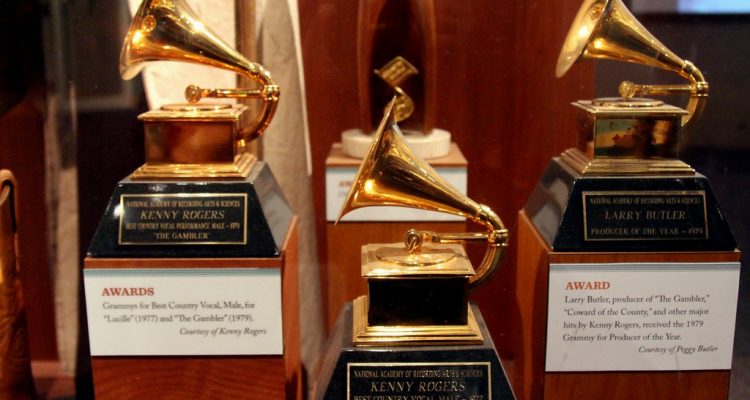After a year marred by devastating loss of life, economic turmoil and worldwide shutdowns, the entertainment award season has arrived once again — and with it comes yet another crop of mostly meaningless controversies. Hooray.
Passive aggressiveness aside, the place award shows like the Grammy Awards and the Academy Awards hold in today’s pop culture is an odd one, to say the least. With the rise of streaming services paving the way for increased access to shows, movies and music, it has become easier than ever to consume the content being honored at these shows. In previous years, where the selection of a movie like “Green Book” for Best Picture would elicit a response like “‘Green Book’? Never heard of it”, we now have a brand new age of media consumption where five out of the eight nominees for Best Picture are released and available through Netflix, Amazon and HBO Max.
This new trend has played a major factor in the practical irrelevance of award shows; which is to say: if everyone can consume great films and music with ease, why do we need an award show to tell us what’s the so-called Best Picture or Best Performance? Factoring in the omnipresence of social media, where any person can voice their own opinion on any topic they want, it’s easy to see why these award shows have seen steep declines in ratings.
Just this past week, the Grammy’s ratings were at an all-time low, dropping a whole 51 percent in viewership numbers. This is also following record drops in viewerships with the Golden Globe Awards and the Emmy Awards, who saw their lowest numbers as well. However, despite the massive decline in ratings, award shows remain a mainstay in most discussions surrounding popular media. The biggest reason behind this? An ever-increasing prevalence of award show controversies.
Now more than ever before, controversy drives a massive portion of clicks and attention online. In an article released by Forbes back in 2016, it was reported that “individuals and companies use ‘Shock Marketing’ tactics, believing that their controversial activities or marketing methods will spark interest in a wide population of readers and word will spread more rapidly than the traffic that typical news stories achieve.” As commercialized events aimed towards generating attention and revenue, award shows like the Grammys are directly affected by this shift in tactics.
Just in the past couple of years alone, almost every single major award show has provided some sort of buzz around a particular snub or unpopular selection. These controversies have also been levied at the expense of women and artists of color, who have been habitually excluded from winning certain awards. An especially egregious example of this has come in the form of the aforementioned Grammy Awards, which decided to omit Canadian artist, The Weeknd, from any nominations, despite him having the Billboard #1 album in the country, as well as his hit song “Blinding Lights” breaking records with 52 weeks among the top 10 songs on the Billboard Hot 100.
The Weeknd is just the latest in an increasing line of high-profile artists who have decided to completely skip out on the Grammy awards, including Jay-Z, Kanye West, Eminem, Frank Ocean, Rihanna and more.
It is negative controversies like this that thrust these award shows into the public spotlight, but at the very expense of their own integrity. If the purpose of award shows is to give attention and recognition to the best, most beloved artists — why are secret committees of biased individuals the deciding factor in what’s chosen and what’s not? And circling back to the rise of social media, does it even matter in the first place? What is the point of an award show if the general public who consumes the material being awarded has little say in the selection process?
More and more, it feels like the solution to this problem of declining ratings and increased conflict is to adapt the structure of the award shows to fit the modern digital age. With pop culture being dominated by public perception, it makes sense that at least one of these shows introduces some audience integration. Perhaps a ranked-choice voting system would allow for some greater accuracy within the categories – or at least redefining the criteria by which the art is being judged. One positive attribute to the recent award shows is the increased focus on equality and fighting social injustices. It would be great to see award shows continue to emphasize these issues through donating proceeds to charities or showcasing impactful performances on the said subject matter.
Regardless of what steps are taken next, it is clear that things cannot remain as they are currently when it comes to these award shows. With the everyday person having school, work or life to manage, it just isn’t entertaining anymore to watch celebrities walk across red carpets and talk about controversies.
Entertainment award shows are meant to be exactly that — entertainment. When someone sits down to watch the Grammys or Oscars, it should be the responsibility of the show to provide an entertaining, unbiased look into each of the different new pieces of art being showcased. Whether it be finding a new movie to watch or maybe a brand new artist to listen to — getting something beneficial from an award show should be imperative. After all, it is the creators, their art and fans of that art who make the award shows what they are, not the other way around.


Leave a Reply